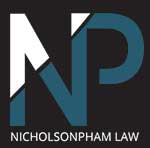Gestational Surrogacy Law Changes and Their Impact on Care in North Carolina

The legal landscape surrounding gestational surrogacy law in the United States is undergoing significant change, which could have a profound impact on the ability of individuals and families to access medical care, including in vitro fertilization (IVF) and surrogacy. In this article, we will explore these changes, their potential implications for North Carolina residents, and how NicholsonPham attorneys can provide comprehensive legal support to families currently undergoing IVF and utilizing surrogates.
Impact of Recent Legal Changes on Medical Care Access
Recent legal changes at the national level, including the overturning of Roe v. Wade, have raised concerns about the future of reproductive rights, including access to IVF and surrogacy. While the exact implications of these changes are still unfolding, it is essential for individuals and families in North Carolina to be aware of potential challenges they may face in obtaining medical care.
In North Carolina, the legality of surrogacy derives almost exclusively from the general statutes which consist of some donor insemination provisions and laws to address illegitimacy. While there have been some acts aimed at addressing Gestational Surrogacy, including a bill to establish Gestational Carrier Agreements in 2009 which did not become law, and new Senate Bill 885 named the Parentage Protection for Families Act just released May 6, 2024, there is no law other than basic contract law and one short statute that governs requirements for surrogacy agreements to be legally valid.
Potential Challenges for Families Undergoing IVF and Utilizing Surrogates
Families currently undergoing IVF and utilizing surrogates may face various challenges due to recent legal changes instigated by the overturning of Roe v. Wade including difficulty moving embryos or disposing of embryos after their families have been enlarged. We expect increased scrutiny of surrogacy agreements, making it more difficult for intended parents to secure legal protection for their parental rights. Additionally, changes in funding for IVF and surrogacy could make these treatments less accessible for many families.
Because the law remains ambiguous and gestational surrogacy is subject to more scrutiny because of changing cultural, legal, and political factors, it is crucial for individuals and families to seek legal guidance to navigate the complex and rapidly changing legal landscape surrounding gestational law and ensure that their rights are protected.
NicholsonPham Can Help
At NicholsonPham, our dedicated team of experienced lawyers are leaders in this legal landscape, well-versed in the intricacies of gestational law at the national and state levels. We understand the unique challenges that families undergoing IVF and utilizing surrogates may face, and we are committed to providing comprehensive legal support to protect their rights and interests as this process unfolds.
Our lawyers can assist clients in a variety of ways, including:
- Drafting and reviewing surrogacy agreements
- Representing clients in legal proceedings related to surrogacy
- Provide insight on the legal implications of recent changes in gestational law and legal planning to compensate for barriers
We are dedicated to helping families navigate the legal complexities surrounding gestational law and ensuring that their rights are protected. Meredith Nicholson and Milan Pham are fellows in the American Academy of Adoption and Assisted Reproductive Attorneys and have been selected to Best Lawyers in America’s Family Law Section by their legal peers. Together they have built North Carolina’s one of the most respected gestational and LGBT-focused law firms in the nation. Schedule your consultation today.

 Call: (919) 883-4900
Call: (919) 883-4900